Kare11
The ‘gritty folk’ who revived central MN’s Cuyuna Country

Main Street is now filled with a plethora of businesses — the turnaround, a testament to not only the popularity of mountain biking, but the people who live there.
CROSBY, Minn. — Just two hours north of the Twin Cities, you’ll find a once-sleepy state park that’s fast becoming an enormous tourist attraction — thanks to the 70 miles of mountain bike trails that crisscross its 5,000 acres.
When you ride the trails at Cuyuna Country State Recreation Area today, it’s hard to believe that 50 years ago, more than 30 iron mines operated in and supported the surrounding towns of Crosby, Ironton, Deerwood and Cuyuna.
But by the 1970s, most of the mines were shut down, forcing many businesses in those towns to do the same.
Aubrey Koop, who now heads the Cuyuna Lakes Chamber of Commerce, grew up in Crosby. She said that through the late 90s and early 2000s, there wasn’t a lot of hope in Crosby, as up to 40% of the businesses on Main Street had been boarded up.
The land around it had become an unofficial dumping zone, with people tossing old couches and cars into the abandoned mine pits, but as the years passed, the land started to heal and the people who lived in the towns nearby decided they’d had enough. That’s when they pulled together and cleaned it up.
“I can’t even tell you about the pounds and pounds of garbage that volunteers went into and pulled out of those mine pits,” Koop said.
Business owner Johnna Johnson ran the Chamber at the time. She said it was the spirit of the volunteers that sparked a movement, which truly caught fire when a mountain bike scout came to town. The scout said the topography created by the mines would make for world-class mountain biking trails.
Once again, volunteers paved the way, building the first five miles of trails that connect the towns of Crosby, Ironton, Cuyuna and Deerwood.
It was a grassroots effort, according to Johnson, involving physical work, fundraising and securing land acquisitions. After the first five miles opened, they gained momentum, and with the help of the DNR and state and federal funding, they built more trails, leading more people to discover what had been hiding all along on the Cuyuna Range.

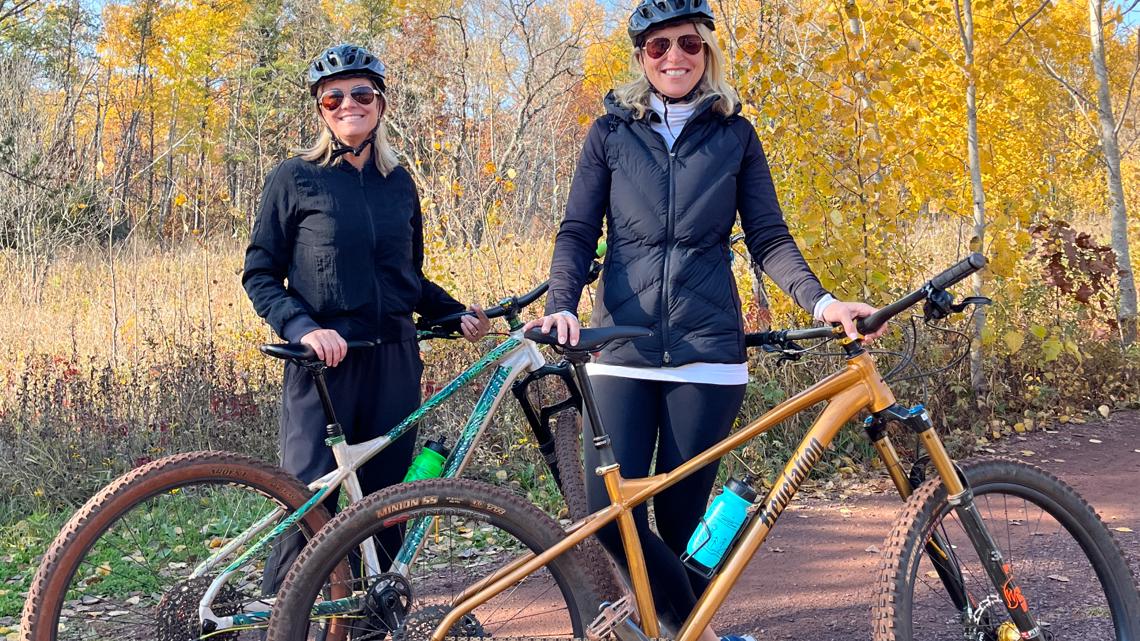
“I think when the trails opened, there was like, 24,000 people that we saw,” Johnson said, “And that was huge, and now I’m thinking it’s 360,000 people. So, that’s a 10-year change.”
Visitors can find a lot of beauty outside of the mountain biking trails as well, including a network of former mine pits that are now pristine, spring-fed lakes. Some are up to 500-feet-deep, and perfect forkayaking, paddle boarding and scuba diving.
It was all of those activities and visitors that attracted the attention of entrepreneurs, like Jake Zoesch, who used to come to Crosby from Milwaukee to visit his in-laws.
“I saw downtown, and I saw all these other little businesses starting, and kind of watching them just boom in the first year they opened — then stay busy,” he said.

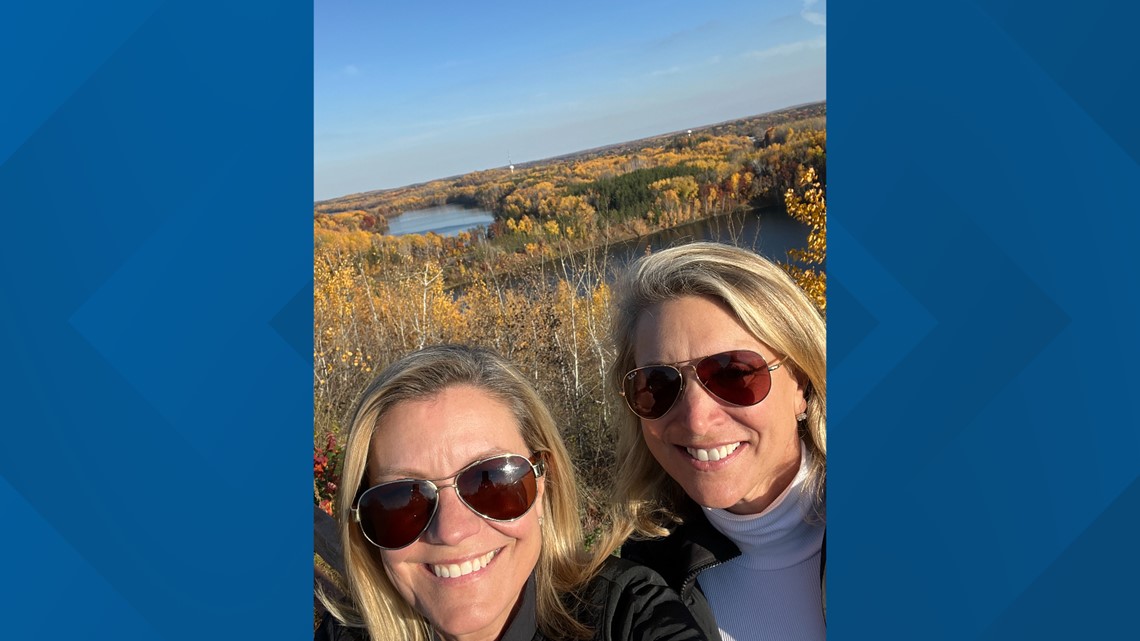
Two years ago, he and his wife decided to open a business of their own. They bought some of the last available land in Crosby and built four cabins that make up The Cuyuna Cabin Collection. They opened June 1 and business, he says, is booming.
“If there was two or three days open for the entire month it was a shock,” he said. “And that number just keeps going up. I don’t see it ending.”
“I’m amazed,” she said. “It seems like every week there’s something else opening in the area.”
Main Street is now filled with coffee shops, restaurants, bike shops and breweries — the turnaround, a testament not just to the popularity of mountain biking trails, but also, to the people who live there.

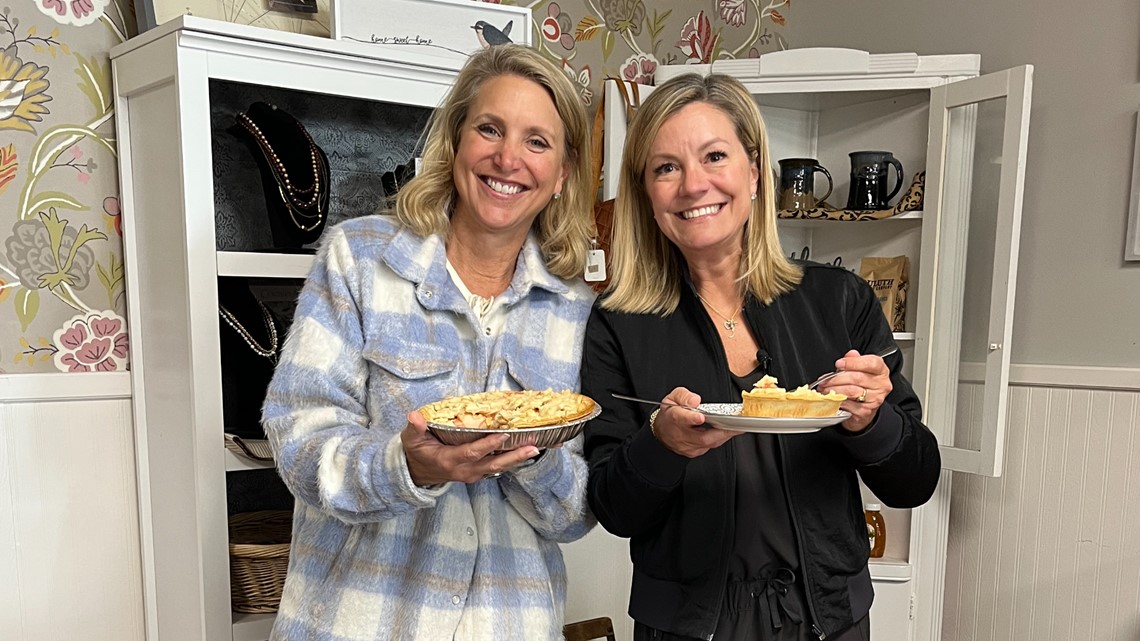
“We’re gritty folk here,” Koop said. “I think, you know, there’s a kind of grit where a lot of us wanted to show off what we had and we had the vision and the drive.”
She invites everyone to come experience it for themselves.
“You have to see it to believe it, I think,” she said. “Come here, give it a shot, see what it’s all about. There’s something for everyone to do here. You’ll want to come back.”
WATCH MORE ON KARE 11+
Download the free KARE 11+ app for Roku, Fire TV, Apple TV and other smart TV platforms to watch more from KARE 11 anytime! The KARE 11+ app includes live streams of all of KARE 11’s newscasts. You’ll also find on-demand replays of newscasts; the latest from KARE 11 Investigates, Breaking the News and the Land of 10,000 Stories; exclusive programs like Verify and HeartThreads; and Minnesota sports talk from our partners at Locked On Minnesota.
Watch the latest local news from the Twin Cities and across Minnesota in our YouTube playlist:
Kare11
Former MN State Trooper Shane Roper, charged with manslaughter, requests case dismissal
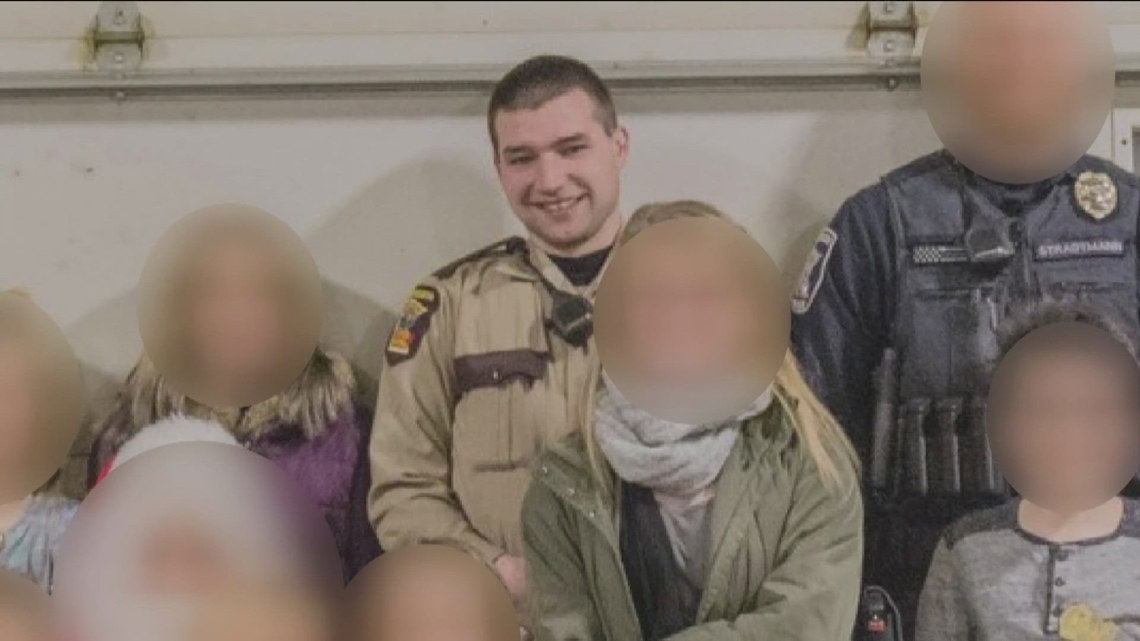

The former state trooper is charged with the killing of 18-year-old Olivia Flores.
ROCHESTER, Minn. — Editor’s Note: The above video first aired on 8/26/2024.
The former Minnesota State Patrol trooper charged with the killing of an 18-year-old girl is asking for his case to be dismissed and a change of venue for it to be moved out of Olmstead County.
The former trooper, Shane Roper, and his attorney argue that the “extensive and regional media coverage” jury pools are likely tainted and a fair trial could not be conducted in Olmstead County.
According to a criminal complaint, Roper was driving 83 miles an hour, full throttle with his lights and siren off when he sped through the busy Rochester intersection by the mall and slammed into 18-year-old Olivia Flores.
Records show he’d been suspended twice and reprimanded twice more for similar behavior.
The order from Roper’s attorney also asks the court to preclude the introduction of any evidence related to prior speeding or traffic incidents involving Roper.
Roper and his attorney are asking for charges 1-8 to be dismissed for “lack of probable cause.”
Kare11
‘This doesn’t change anything’ Biden apology for Native American boarding schools draws mixed reaction


For the very first time, a sitting President has apologized for boarding schools that tore Native Americans apart and led to countless cases of abuse and death.
MINNEAPOLIS — During his first presidential visit to Indian Country on Friday, Joe Biden delivered a historic and emphatic apology, acknowledging 150 years of abuse, trauma and death inflicted by Native American boarding schools.
“I formally apologize, as President of the United States of America, for what we did,” Biden said. “It’s one of the most horrific chapters in American history,” said President Biden.
Christine Diindiisi McCleave, former CEO of the National Native American Boarding School Healing Coalition, spent years documenting the stories of boarding school survivors and advocating for justice and accountability by the US leaders.
“My family has two generations of boarding school history that I know of,” McCleave said, during an interview for the KARE 11 Series “Lost History,” which detailed the impact of boarding schools in Minnesota.
During his speech on Friday, President Biden acknowledged the work of the Native American Boarding School Healing Coalition and efforts to better understand the horrors and generational trauma the schools inflicted.
“Generations of Native children stolen, taken away to places they didn’t know,” Biden said. “Children abused emotionally, physically and sexually abused, forced into hard labor, some put up for adoption without the consent of their birth parents. Some left for dead in unmarked graves.”
Christine Diindiisi McCleave: “I struggle with what I’m supposed to say and what I really feel.”
Kent Erdahl: “Why do you say that?”
McCleave: “Well, because today is historic and while I am grateful to see this progress being made. I am also realizing just how short it falls… from real reparations, from real healing.”
She knows she’s not the only one who feels that way. The National Native American Boarding School Healing Coalition surveyed survivors in 2016.
“The thing they wanted the least was an apology because, while it is an acknowledgement, it doesn’t change anything,” McCleave said. “The majority of them said they wanted a truth commission. Trying to find out exactly how many boarding schools existed, how many children went to those boarding schools and how many children died at those schools.”
She says an investigation led by Interior Secretary Deb Haaland, whose grandparents and mother were among those sent to these schools did help better understand that impact, but it only scratched the surface.
“They were only able to investigate the Federal Government’s records,” McCleave said. “Half of these schools were run by churches, of various denominations, and so a truth commission would be able to look into those records as well.”
“Nearly one thousand documented Native child deaths, though the real number is likely to be much, much higher,” Biden said on Friday.
Bills in both the House and the Senate could make that commission a reality, but until that happens, Christine says she can’t ignore the politics of an apology that took place in a swing state, just days before an election.
McCleave: “This apology doesn’t change anything for my mother, who was abused as a child. Of for my grandfather who was a abused at a Catholic Indian Boarding School.”
Erdahl: “Do you hope that this isn’t just an election ploy?”
McCleave: “I hope that this apology actually helps that bill get passed. Native American people are no stranger to being political pawns, so you know what, if this is an election ploy so be it, I hope something good comes out of it.”
Kare11
Hazelden addiction, recovery experts host first cannabis summit
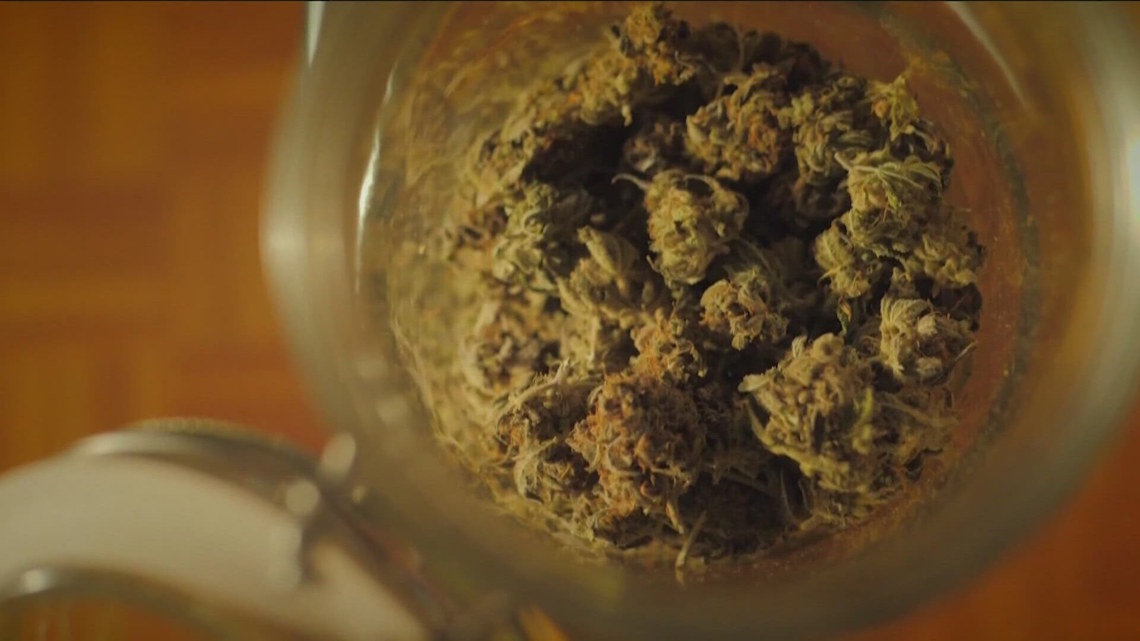

Researchers spoke about increased THC potency and the impact on youth brain development.
ST PAUL, Minn. — Whether purchased from dealer or dispensary, weed has become more potent over the years. In 2022, the federal government reported THC levels more than tripled since 1995.
Hazelden Betty Ford Foundation Graduate School addressed this Friday at its first cannabis summit. Attendees primarily included the nonprofit’s graduate students as well as undergraduate students from nearby universities.
Speakers included researchers from the University of Minnesota, Hamline University, Mitchell Hamline School of Law and others.
Ken C. Winters, is a senior scientist at the Oregon Research Institute’s Minnesota location and a consultant for the University of Iowa’s Native Center for Behavioral Health.
He covered the interplay between youth, cannabis and health.
“It’s not your grandparents’ marijuana these days,” Winters said to the students.
The Hazelden Betty Ford Foundation Graduate school offers a 2-year program, in which students like John Ryan and William Barksdale are earning counseling degrees in substance use and mental health.
“The takeaway would be that you’ve seen potency levels increase quite a bit, and the research is trying to keep pace with that,” Barksdale said.
“As we saw today, marijuana use has gone up in the last couple years such that it’s eclipsed alcohol use in terms of daily users in the United States,” Ryan added. “It’s is much more concerning now because there is such a higher degree of potency that’s available on a wider basis.”
Ryan says it’s especially concerning for youth.
“The subject of the last presentation, which I found quite engaging, was the specific effects on adolescents,” he said. “So, teenagers and people within that young adult range, the 18 to 25-year-olds because that’s generally the period the most brain development takes place. So that’s the area of concern … but it’s still something that I think is being studied and being observed in the first stages of that.”
Kevin Doyle provided opening remarks. He has more than 35 years of experience as a licensed professional counselor. Today, he’s president and CEO of the grad school.
“Potency, dosage, frequency of use, availability, legal cutoffs in terms of age, all those things need to be talked about,” Doyle said. “Adolescent brain development. We know more and more about that every year. Sometimes it seems like every day we learn more about that.”
“How do we as a treatment community need to be prepared to respond?”
The summit comes as Minnesota works to set rules for the cannabis industry after legalizing the drug for recreational use last year. A public comment period is expected later this fall.




GIPHY App Key not set. Please check settings